The End Funny Pictures the End Funny Pictures of Presentation
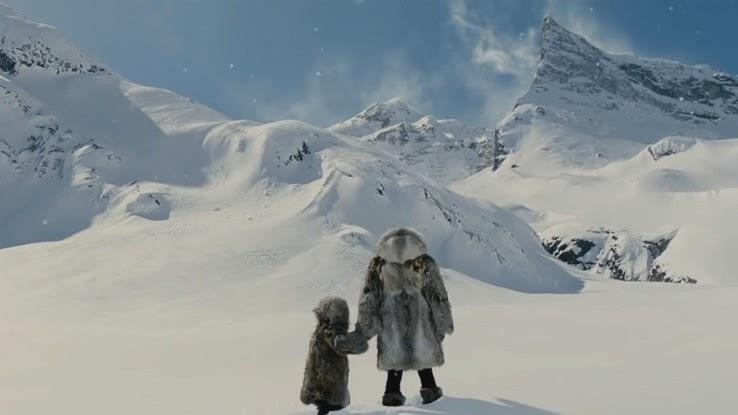
While some movies thoroughly satisfy moviegoers with nuanced endings, others leave audiences arguing or flat-out unhappy. The end of a movie is arguably the most important part, yet not every film manages to land it.
From The Empire Strikes Back to Snowpiercer, some movie endings have always inspired debate. These films all had strong starts, but whether they ended well is something still debated today.
Titanic
Based on the real-life sinking of RMS Titanic, 1997's Titanic became a box office smash. Starring Leonardo DiCaprio and Kate Winslet, the film followed two completely opposite people falling in love during the tragic voyage. Titanic became the first movie to gross $1 billion.
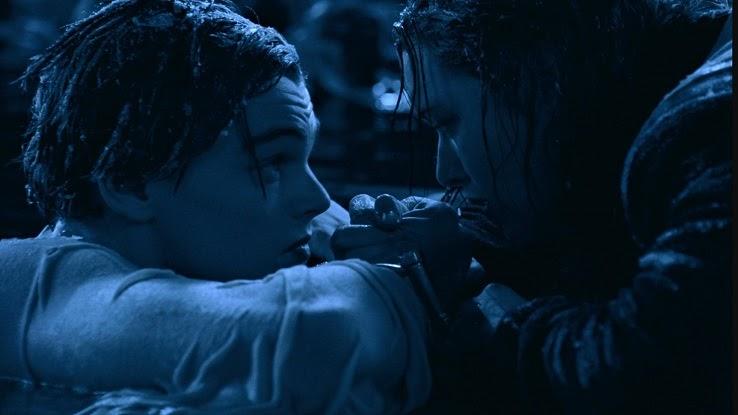
The ending found Jack placing Rose on a wooden board while he swam in the cold water, but many believed the wooden board was big enough for both of them. When asked about the ending on The View, director James Cameron stated, "Jack's always going to die, folks! There's no other version of reality."
2009's Watchmen deliver a unique take on the superhero genre. Based on the DC Comics series of the same name, the film was gritty and unafraid of pushing things to the limit. The film earned three Saturn Awards, including one for Best Fantasy Film.
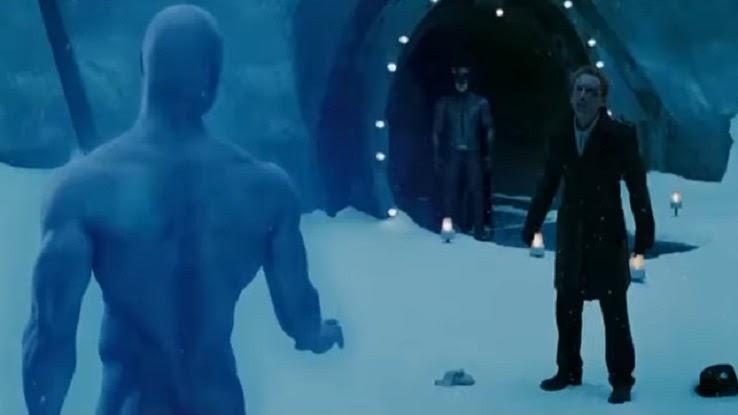
The film's ending found Dr. Manhattan as public enemy number one against the United States and Russia. In the comic books, both nations joined forces following an attack from an alien squid created by Ozymandias. This shift in storyline didn't sit well with die-hard comic book fans.
Star Trek II: The Wrath of Khan
Following the successful 1979 film Star Trek: The Motion Picture, Paramount Pictures released Star Trek II: The Wrath of Khan. The film found Khan Noonien Singh getting his revenge on James T. Kirk. Unlike in the first film, Star Trek creator Gene Roddenberry wasn't part of the sequel.
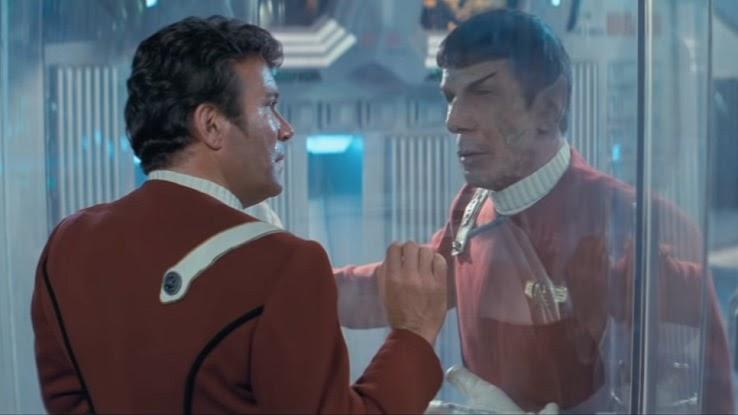
The ending found Captain Spock sacrificing himself to save everyone on the USS Enterprise. His death, which was leaked months before filming, drew harsh criticism from fans. However, actor Leonard Nimoy had been ambivalent about making the movie, and it was by only agreeing to kill him off that the movie was made at all.
The Devil Inside
2012's The Devil Inside told the story of filmmaker Isabella Rossi trying to find out what happened to her mother and subsequently going through a series of exorcisms. The film gained $102 million at the box office against a $1 million budget.
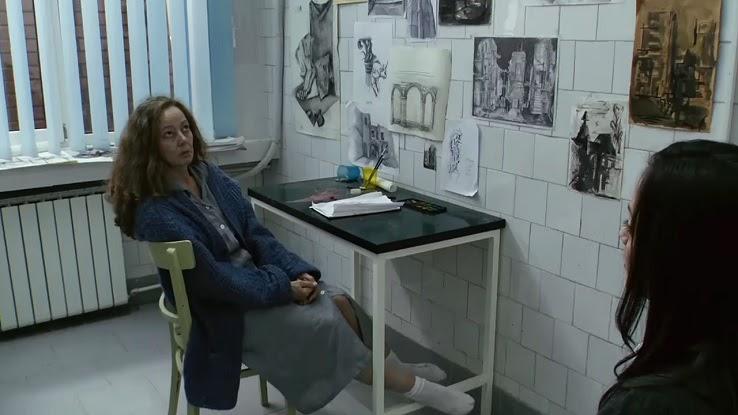
The ending of the film showed Rossi's possessed friend driving into oncoming traffic. The screen cut to black, and moviegoers were treated to a screen showing a link to a viral website. Instead of a proper ending, viewers were left watching a massive ad for a website.
The Interview
The Interview followed reporters Dave Skylark and Aaron Rapaport as they tried to interview North Korean leader Kim Jong-un. Unfortunately, the CIA wanted the two to join them in assassinating the leader. The film, which was released by Sony Pictures Releasing, was in development since 2010.
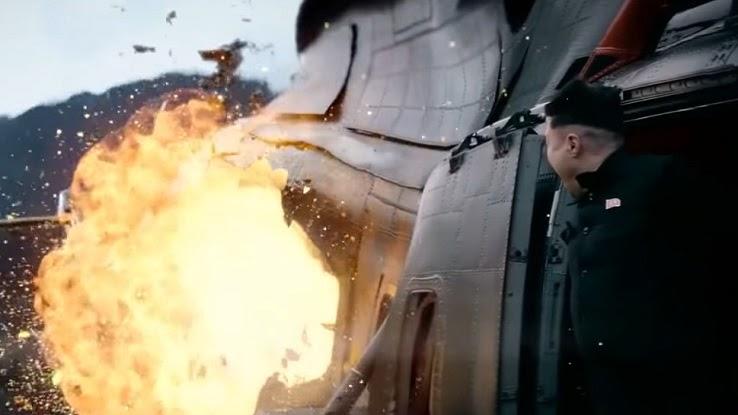
While the film wasn't divisive domestically, the reception in North Korea was decidedly different. Because of Kim Jong-un's death at the end, the North Korean government threatened action against the United States if the film was released, leading Sony Pictures to give the film a digital-only release. A select amount of theaters showed the film for a limited time.
Blade Runner
Blade Runner was the quintessential grim dystopian movie. Starring Harrison Ford, the film's concept didn't sit well with many upon its initial release. Over time, however, Blade Runner became a cult classic and the inspiration for numerous other films, TV shows and video games.
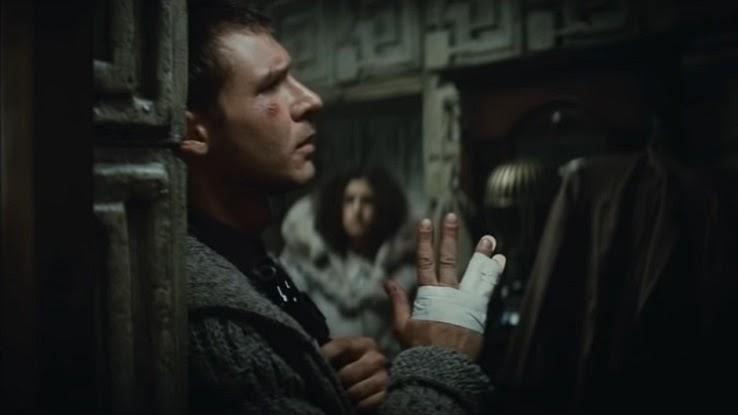
The original ending left it unclear whether Ford's character was actually a replicant. That led fans to debate his status for years. The director's cut ending, which was released a decade later, fixed the ambiguity with a message implying the character was truly a replicant.
Monty Python's Life of Brian
1979's Monty Python's Life of Brian told the story of Brian Cohen, who was born on the same day as Jesus Christ. If that's not enough, Jesus Christ was also his next-door neighbor. Things got wild when he ended up getting confused for Christ himself.
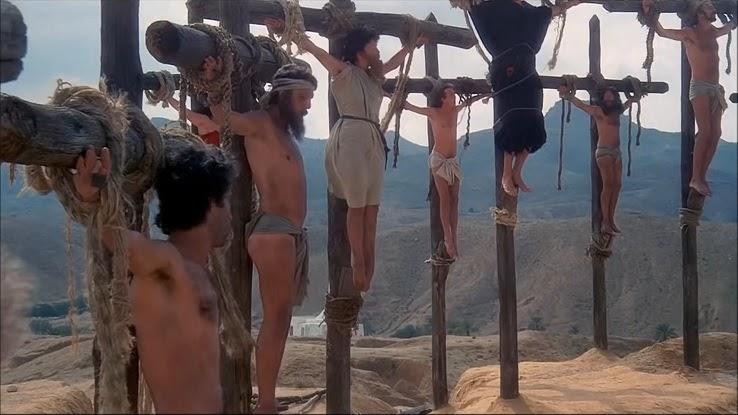
The entire film generated controversy, but the ending shocked audiences everywhere. Crucified convicts closed the movie by singing Eric Idle's "Always Look on the Bright Side of Life." The film was banned in Ireland, and some religious groups sang hymns in protest of the movie's content.
The Gift
Actor Joel Edgerton's directorial debut was the 2015 psychological thriller The Gift. The movie followed a married couple (Simon and Robyn Callem) as they moved to Los Angeles to start a new life. Unfortunately, someone from their past (Gordon "Gordo" Mosley) made things awkward with random gifts.
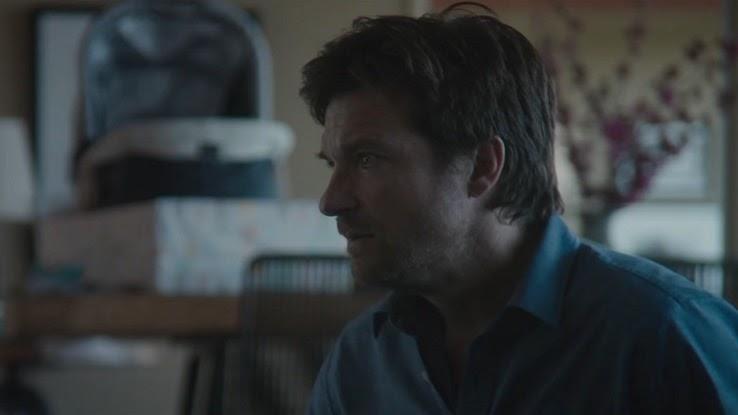
The film's ending revealed that Robyn and Simon's child didn't belong to them. One final gift determined Gordon was actually the father of their new kid. Audiences and critics alike panned it for its unnecessary build, while some viewers wished the plot twist had been the focal point of the movie.
The Wild Bunch
1969's The Wild Bunch followed a gang of outlaws traveling throughout the United States. With the world changing around them, they decided to go on one last mission. The film earned two Oscar nominations for Best Original Screenplay and Best Original Score.
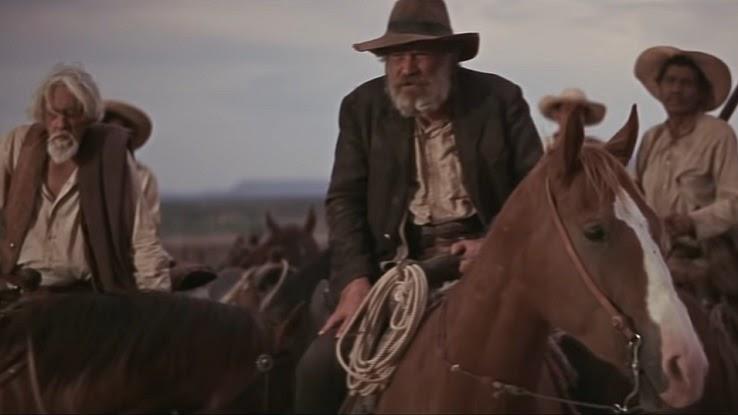
The film's violent ending involved the outlaw gang battling Mexican soldiers, and it was controversial at the time. The violence led to the MPAA almost giving the film an X rating. This was the first film considered unsuitable for children by the MPAA.
La La Land
Ryan Gosling and Emma Stone delivered stellar performances as Sebastian Wilder and Mia Dolan respectively in 2016's La La Land. The film saw them falling in love while living in Los Angeles. The movie became an Oscar juggernaut with six wins, including one for Best Director.
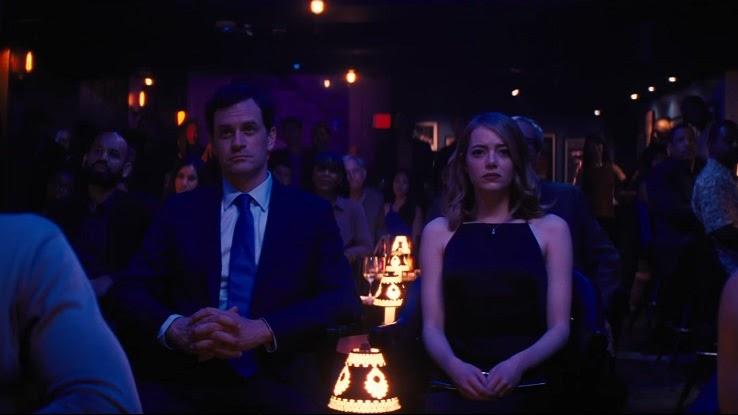
The film's ending showed Mia attending Sebastian's jazz performance with her husband. During it, the film cut to scenes of what could have been if Mia and Sebastian were married instead. This upset many viewers who wanted those characters to have a happy ending with each other.
Man of Steel
2013's Man Of Steel became the first film to kick off the DC Extended Universe. The film served as Superman's origin story as he struggled with their powers. Despite problems with its pacing, the film walked away with $668 million at the box office.
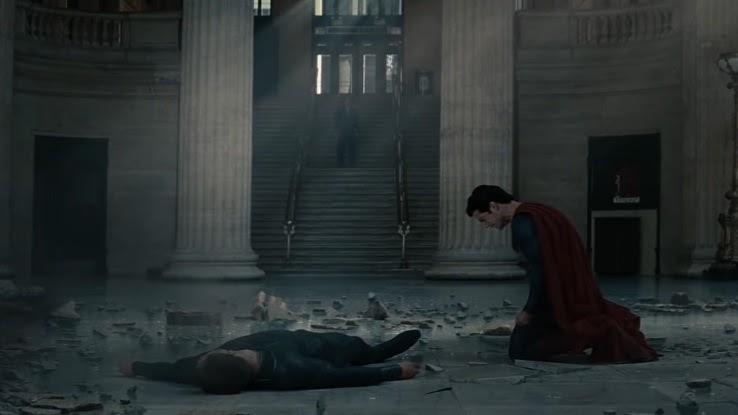
The climax was when Superman killed General Zod to protect the world. This upset long-time comic book fans because Superman doesn't kill anyone in the books. Comic book writer Grant Morrison and comic book artist Neal Adams were some of the most vocal critics about this sudden change of character.
The Blair Witch Project
The Blair Witch Project helped influence a generation of found footage films upon its 1999 release. The movie depicted filmmakers trying to uncover information about the local Blair Witch legend. Unfortunately, they find it to be all too real.
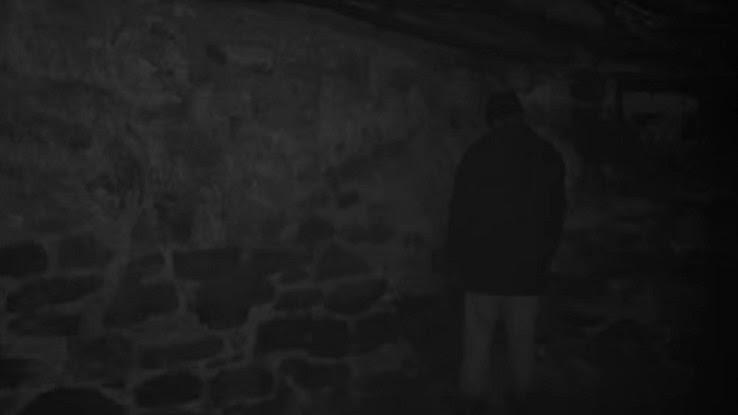
The film's ending shows an unknown enemy attacking Heather in the basement. The last thing audiences saw was Mike standing in a corner before it cut to black. Some audience members found the ending unfulfilling, while others felt it was a perfect closer for the chaos on screen.
Planet of the Apes
2001's Planet Of The Apes chronicled Captain Leo Davidson's accidental journey to a world filled with talking apes that enslave humans. With the assistance of an ape named Lori, Davidson struggled to free humanity.
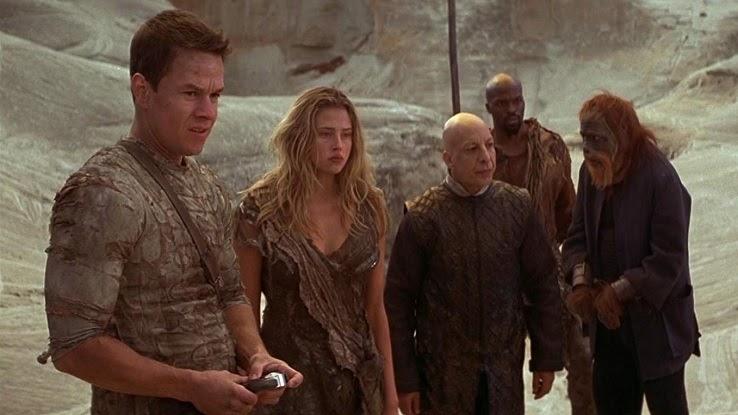
The ending of the film showed Davidson returning to an Earth, but where a statue of ape general Thade being erected and all the humans have been replaced by apes. It was completely different from the 1968 classic, and fans of the original film weren't amused.
The Sixth Sense
1999 psychological thriller The Sixth Sense introduced the world to actor Haley Joel Osment. He played opposite Bruce Willis' character, psychologist Malcolm Crowe, as Cole Sear, a boy with the power to see the dead. Osment's performance landed him an Oscar nomination for Best Supporting Actor.
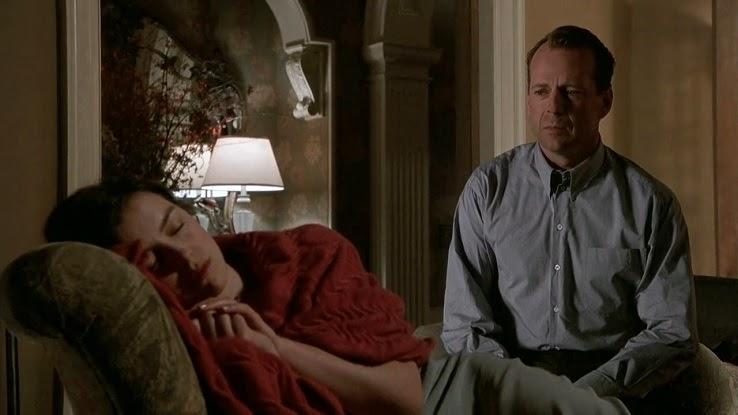
At the end of The Sixth Sense, audiences discovered Crowe was dead the whole time. It taught audiences about director M. Night Shyamalan's love for twist endings, and people talked about it for months afterward around water coolers everywhere.
Inception
Inception changed the way people saw their dreams. Released in 2010, the film followed thief Dom Cobb (Leonardo DiCaprio), who retrieved secrets for clients by infiltrating people's dreams.
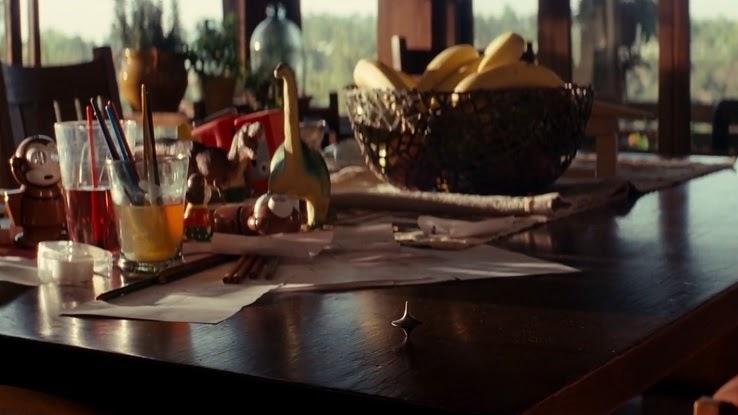
Cobb had a spinning top to determine if he was in someone's dream. If he was in the real world, the top stopped. If it didn't, he was still in a dream. The final few seconds of the film showed the top wobbling but not fully stopping, leaving audiences wondering if Cobb ever made it back to reality.
2001: A Space Odyssey
Sci-fi film 2001: A Space Odyssey gained praise for its realistic portrayal of space flight and rich symbolism. The movie dealt with a trip to Jupiter and a rebellious AI, the computer HAL 9000 voiced by Douglas Rain.
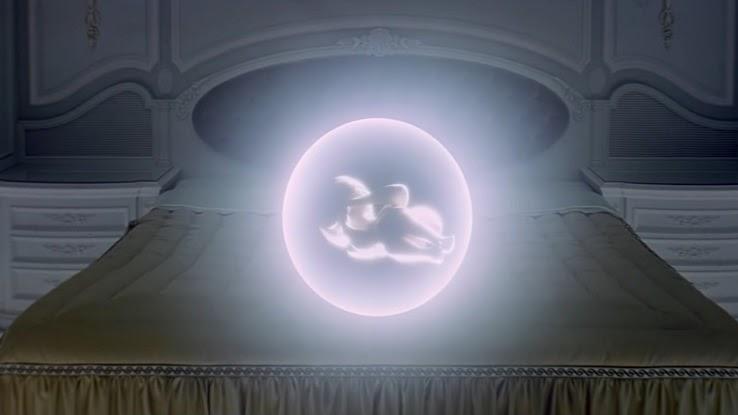
Following the demise of HAL 9000, Dr. David Bowman, who was played by Keir Dullea, traveled through time until he reached a monolith. While trying to grab it, he turned into a fetus and was then shot into space in an orb of light. The ending of the film still confuses people today.
No Country for Old Men
2007's No Country For Old Men brought 1980 West Texas to life with the help of the Coen Brothers. After stealing money from a drug deal, Llewelyn Moss (Josh Brolin) was hunted by Chigurh (Javier Bardem) and Sheriff Bell (Tommy Lee Jones).
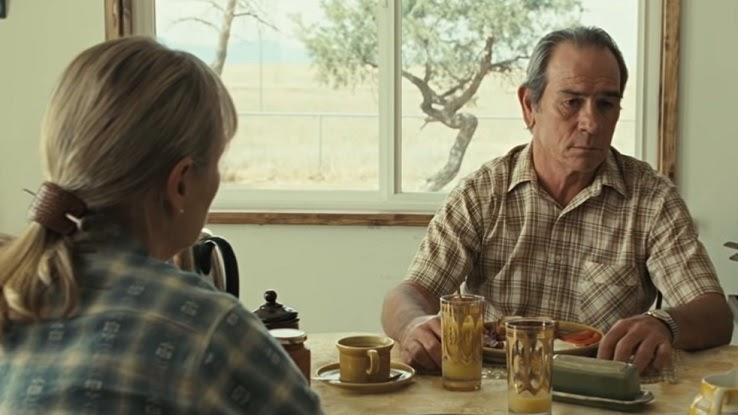
In the last scene, Bell recalled a dream he had involving his father and a torch. When Bell proclaimed, "And then I woke up," the scene cut to black, confusing and angering many moviegoers.
Star Wars: The Empire Strikes Back
1980's The Empire Strikes Back continued the successful Star Wars franchise with Luke Skywalker, Han Solo and Princess Leia on the run from Darth Vader. The movie walked away with two Oscars for Best Sound and Best Visual Effects.
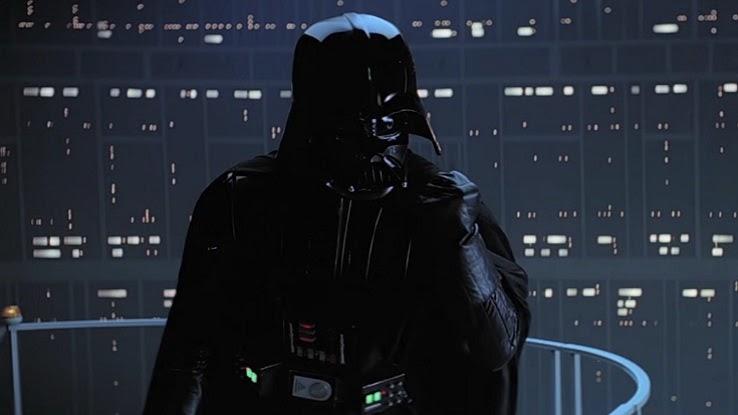
Vader announcing he was Skywalker's father is easily the biggest plot twist in cinema history. Star Wars fans couldn't keep themselves from accidentally spoiling the moment for people waiting in line at the theater. Today. "No, I am your father" is one of the most (mis)quoted movie lines of all time.
Donnie Darko
Psychological thriller Donnie Darko took 28 days to film, which matched the timespan in the movie. Jake Gyllenhaal played the title character, who had apocalyptic visions involving a crazed man in a rabbit suit, which became the film's unofficial mascot.
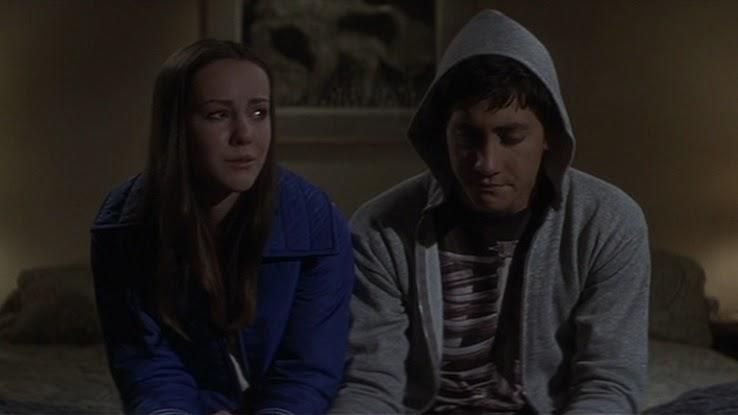
In the end, Darko met his maker via a falling jet engine. Following his death, Donnie's mother Rose waved at Gretchen, but in a strange manner. It was almost as if she was satisfied with her son's horrific death. This ending has continued to confuse moviegoers for years.
The Village
2004's The Village was about residents of a 19th-century local village who were fearful of mysterious creatures in the area. However, that didn't stop Ivy Elizabeth Walker, played by Bryce Dallas Howard, from traversing through the forest to grab some medicine.
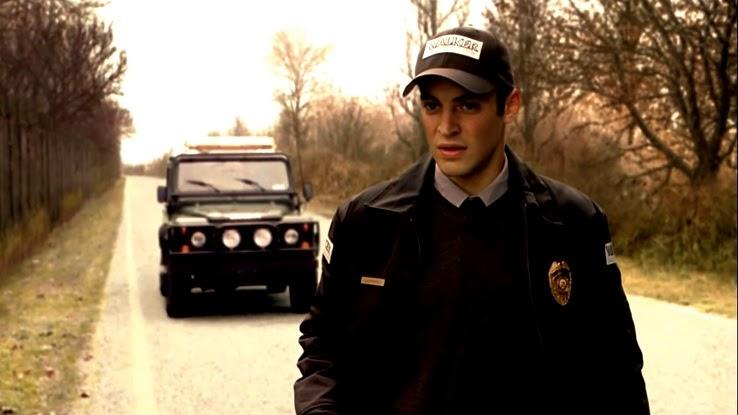
Director M. Night Shyamalan delivered his biggest twist ever he revealed the town was actually from the present. The creatures roaming around were simply people dressing up to keep residents from leaving the town. Things got even crazier when Shyamalan appeared as a guard to deliver this news.
Taxi Driver
Taxi Driver tells the story of Travis Bickle as an insomniac taxi driver. Things change when Bickle hatches a deranged plan to assassinate presidential candidate Charles Palantine to save 12-year-old Iris. This becomes part of Bickle's ongoing quest to become a hero to everyone.
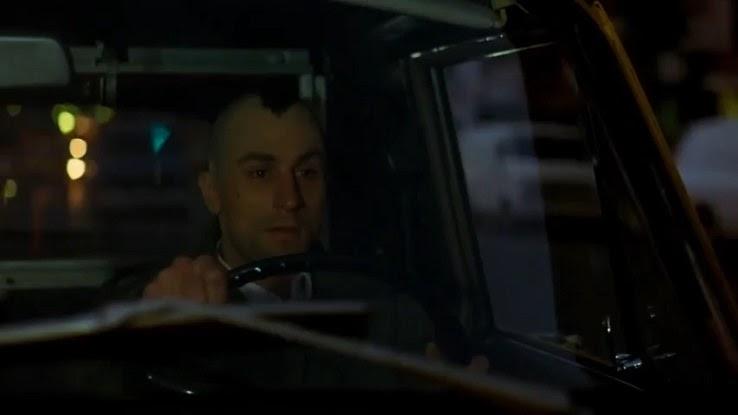
Taxi Driver's ending finds Bickle taking down some bad guys to save Iris, but not before being wounded. Bickle finally becomes the hero he wanted to become. However, many people consider the ending to be a dream sequence, meaning Bickle may have failed in his mission.
Bonnie and Clyde
The legend of Bonnie Parker Clyde Barrow got the big-screen treatment with 1967's Bonnie and Clyde, directed by Arthur Penn. With Warren Beatty and Faye Dunaway in the title roles, Bonnie and Clyde became a landmark film in Hollywood.
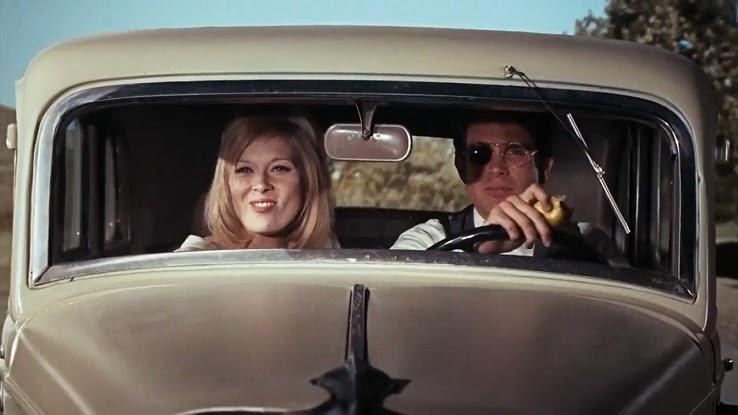
The ending of Bonnie & Clyde shocked everyone with its violent depiction of the pair's inevitable death. New York Times film critic Bosley Crowther was particularly harsh, but the cast and crew weren't silent in their support for the movie. "Everybody in the world can like a movie, and if Crowther doesn't, he kills it," Beatty told Roger Ebert.
Snowpiercer
Snowpiercer told the story of the last remnants of humanity on the train Snowpiercer as tension builds between the upper and lower classes. The film gained a slew of nominations, including Best Director at the Director's Cut Awards.
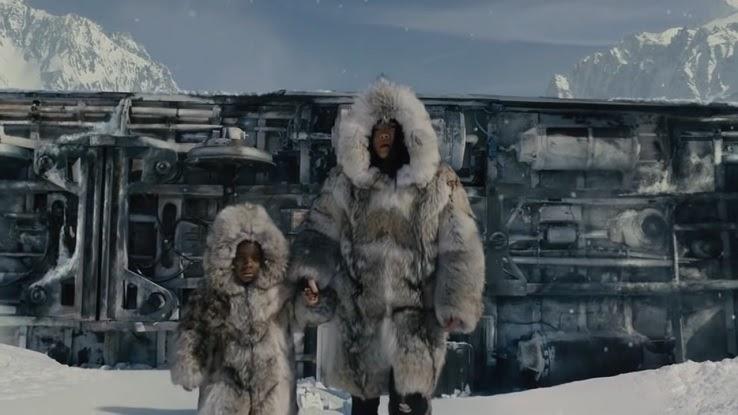
During the film's finale, Curtis Everett (Chris Evans) destroyed the Snowpiercer, killing nearly everyone on board. Two children, however, stepped out of the vehicle to begin again. However, some critics thought it was heavy-handed for the children to be the only survivors of the situation.
Do the Right Thing
Spike Lee's comedy-drama Do The Right Thing dealt with the racial tension in one Brooklyn neighborhood. In the film, Lee played pizza delivery driver Mookie, who worked for vile pizzeria owner Sal (Danny Aiello). The latter earned a Best Supporting Actor nomination at the Oscars.
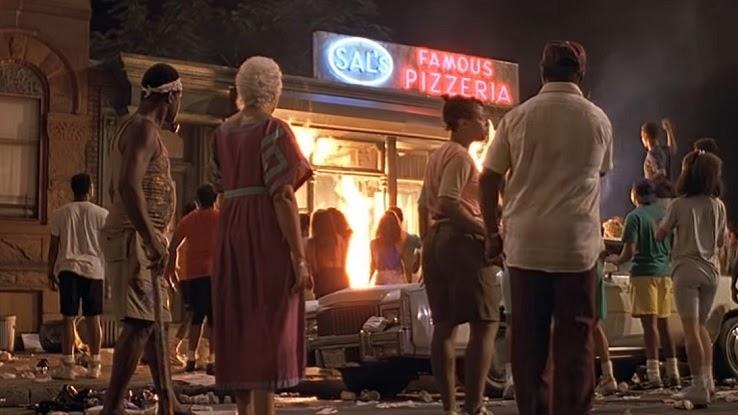
Many viewers knew the film would end in chaos. Before its release, however, some people thought actual riots would happen in the streets outside of the movie. "I don't remember people saying people were going to come out of theaters killing people after they watched Arnold Schwarzenegger films," Lee told Rolling Stone.
Passengers
2016 sci-fi/romance film Passengers began with Jim Preston (Chris Pratt) awakening too early from hibernation on a ship with thousands of passengers heading to a planet 60 light-years from Earth. The film earned Oscar nominations for Best Production Design and Best Original Score.
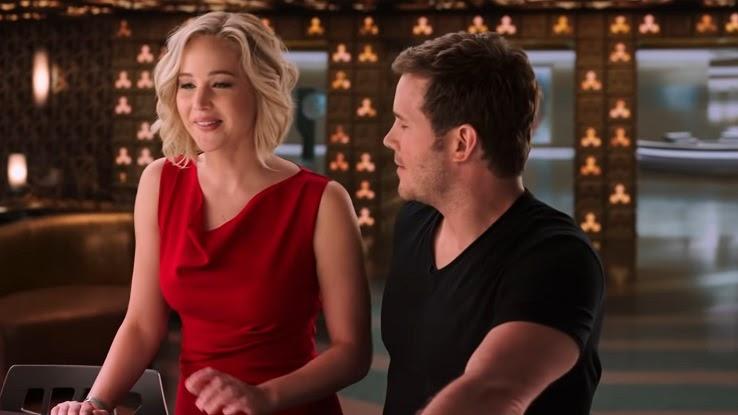
Earlier in the film, Jim woke up another passenger, Aurora Lane (Jennifer Lawrence), to keep himself company on the remaining decades-long trip. In doing so, however, he doomed her to die along with him before they reached their destination. While the two eventually fell in love and married, some critics and moviegoers argued that Jim was a reprehensible human being and that they shouldn't have gotten together.
10 Cloverfield Lane
Eight years after 2008's classic Cloverfield, 10 Cloverfield Lane was just as confusing as the original. The film follows three individuals trying to survive in a chemically-destroyed Earth. As with the previous film, the plot's details were kept secret before its release.
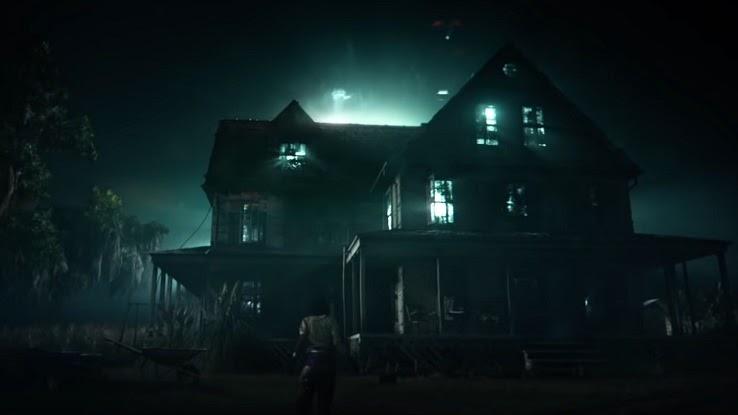
The film ended with Michelle (Mary Elizabeth Winstead) taking down Howard (John Goodman) after he admitted to killing Emmett (John Gallagher Jr). Before the credits rolled, however, Michelle fought a surprise group of aliens. Many felt the battle against the aliens was completely unnecessary to the story.
Safe Haven
2013's Safe Haven focused on Katie Feldman, as she tried to make a new life for herself in Southport, North Carolina. While in town, her friend Jo set her up with a man named Alex. Unfortunately, Katie's past comes back to haunt her.
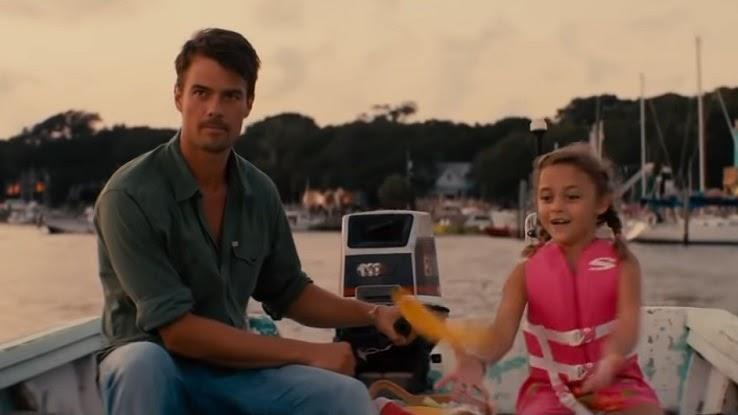
The ending revealed Katie's friend Jo to be possessed by the spirit of Alex's dead wife, Carly. What aggravated moviegoers was that there were no supernatural elements in the film before that. However, the film was following the plot of the 2010 novel of the same name, and fans of the book were confused by everyone's anger towards it.
The Grey
2011 survival film The Grey dealt with oil-men fighting to survive against wolves in Alaska. John Ottway (Liam Neeson) was known for killing wolves for the company, but after he and some co-workers crashed in the wilderness, they were all in over their heads.
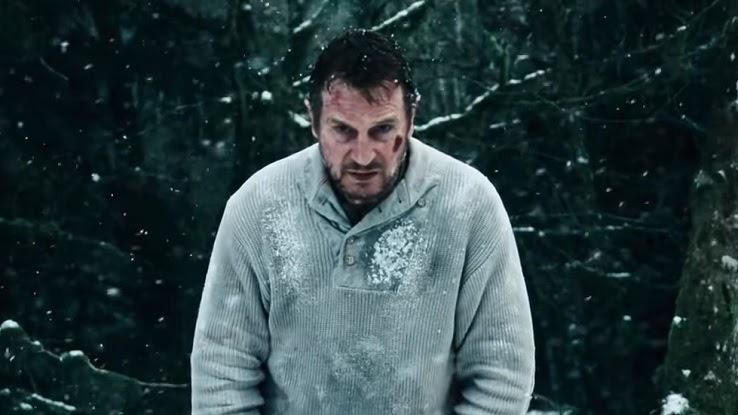
The film ended with Ottway facing the fiercest wolf in the pack. With nothing to lose, he charged at the animal. Unfortunately, the screen cut to black before the fight resolved itself. A post-credit scene showed Ottaway and the wolf lying next to each other, but viewers couldn't tell if either was alive.
The Dark Knight Rises
As the final chapter of The Dark Knight trilogy, The Dark Knight Rises was one of 2012's most highly anticipated movies. As Bruce Wayne and his alter ego, Batman, Christian Bale returned to the franchise to take down villain Bane (Tom Hardy). With a $1.08 billion box office, it was the seventh highest-grossing movie of all time.
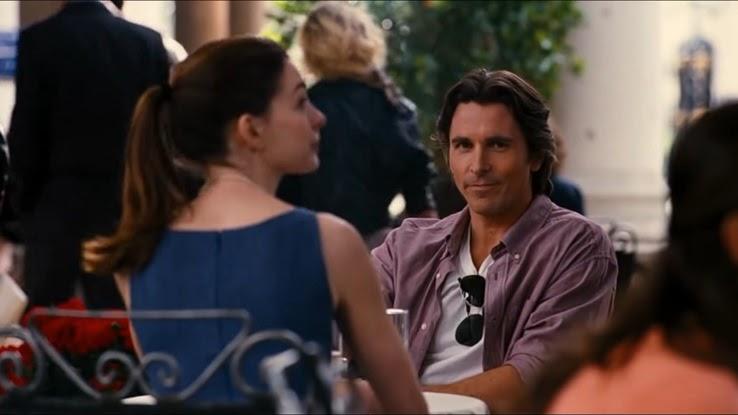
The film ended on Wayne retiring his Batman persona to spend time with Selina Kyle, Catwoman (Anne Hathaway). Many fans had assumed he'd died earlier in a nuclear explosion, which led some moviegoers to criticize the film. There was even speculation that the ending was some sort of dream sequence and Batman was a goner.
The Mist
Based on Stephen King's 1980 novella, The Mist focused on a supernatural (wait for it) mist rolling through town. David Drayton (Thomas Jane) and his son Billy (Nathan Gamble) were trapped in the supermarket thanks to the weather condition, and they soon uncovered violent creatures outside.
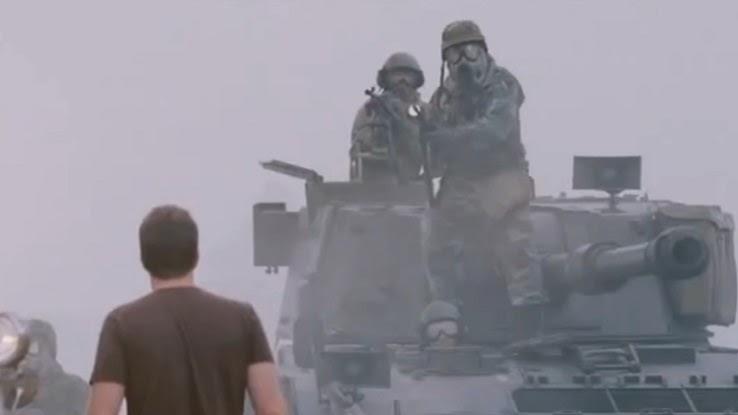
The film's ending was a complete 180 from the book's finale, with David mercy-killing the remaining survivors just before discovering the Army was there to save the day. While fans hated the ending, King enjoyed the plot twist.
saephanfradenurry.blogspot.com
Source: https://www.ask.com/tvmovies/most-controversial-movie-endings-all-time?utm_content=params%3Ao%3D740004%26ad%3DdirN%26qo%3DserpIndex
0 Response to "The End Funny Pictures the End Funny Pictures of Presentation"
Post a Comment